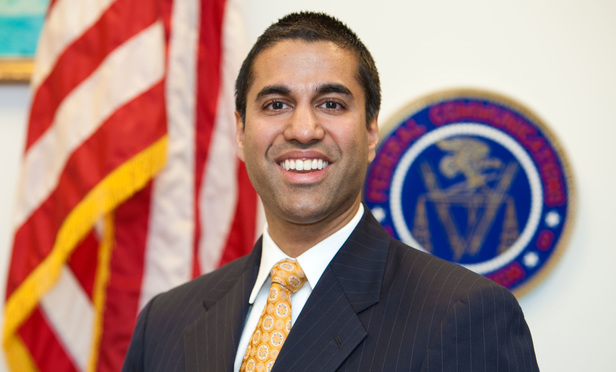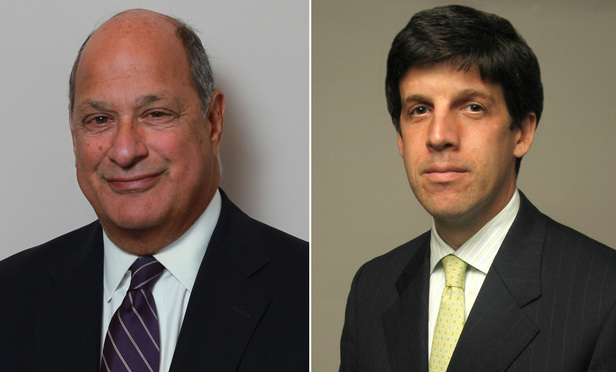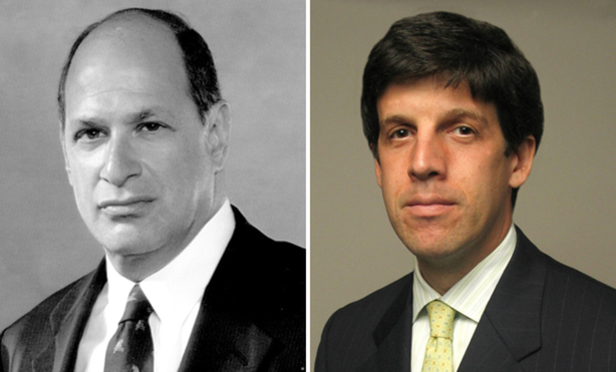James L Bernard

February 10, 2023 | New York Law Journal
Gabby Petito: When an Attorney Publicly CommentsHow far can a lawyer go in protecting the client in the court of public opinion?
By Joel Cohen and James L. Bernard
6 minute read

March 13, 2017 | New York Law Journal
Appointment of New FCC Chair Could Lead to Reduced TCPA LitigationJames L. Bernard and Arjun P. Rao of Stroock & Stroock & Lavan write: Year after year, litigation under the Telephone Consumer Protection Act continues to increase. The recent appointment of Ajit Pai—who dissented to two important FCC opinions that have been criticized as contributing to the onslaught of TCPA litigation—as the Chairman of the FCC, however, has the potential to reduce that volume of litigation.
By James L. Bernard and Arjun P. Rao
16 minute read

June 14, 2016 | New York Law Journal
The Movie 'Spotlight' and Legal EthicsJoel Cohen and James L. Bernard write: Like all good movies about an important and controversial event, the story told in the movie "Spotlight," about the role of the Boston Globe in uncovering the breadth of the clergy scandal that impacted the Boston diocese, was no doubt some combination of truth and dramatization. One startling and poignant scene is worth discussing from an ethics point of view.
By Joel Cohen and James L. Bernard
25 minute read

December 08, 2015 | New York Law Journal
Changing a Criminal Client's Social Media PagesIn their Ethics and Criminal Practice column, Joel Cohen and James L. Bernard write: Social media has become a powerful tool for law enforcement. But manipulating a client's social media persona (really, the client's public persona) can also be a powerful tool for targets or defendants, one that an attorney may want to explore—provided he does so within the bounds of his ethical, or legal, obligations.
By Joel Cohen and James L. Bernard
13 minute read

December 07, 2015 | New York Law Journal
Changing a Criminal Client's Social Media PagesIn their Ethics and Criminal Practice column, Joel Cohen and James L. Bernard write: Social media has become a powerful tool for law enforcement. But manipulating a client's social media persona (really, the client's public persona) can also be a powerful tool for targets or defendants, one that an attorney may want to explore—provided he does so within the bounds of his ethical, or legal, obligations.
By Joel Cohen and James L. Bernard
13 minute read

December 10, 2013 | New York Law Journal
The 'Ethic' of Getting Up to Speed 'Technologically'In their Ethics and Criminal Practice column, Stroock & Stroock & Lavan's Joel Cohen and James L. Bernard write: For many lawyers, the old ways die hard, and learning new tricks is not easy. This may be especially true for the solo practitioner, who does not have the small army of tech-savvy "litigation support specialists" to help navigate the waters that many firms now have. But like it or not, an understanding of technology is ethically required, so the sooner we all get comfortable with it, the better.
By Joel Cohen and James L. Bernard
11 minute read

August 13, 2013 | New York Law Journal
When a Client Post-Trial Says: 'I Perjured Myself'In his Ethics and Criminal Practice column, Stroock & Stroock & Lavan's Joel Cohen and James L. Bernard write that since the adoption of the Rules of Professional Conduct in New York, an attorney's duty to the court trumps the duty of confidentiality. A recent ethics opinion addresses some key aspects of the new rule that are otherwise somewhat unclear.
By Joel Cohen and James L. Bernard
12 minute read
March 24, 2003 | National Law Journal
Don't Let Your E-mail 'Papering' Hurt Your ClientIn an age of increased court-ordered surveillance — prosecutors may now surveil e-mail accounts — a lawyer's "papering" of his legal advice may come home to harm a client.
By Joel Cohen and James L. Bernard
8 minute read
July 28, 2004 | New York Law Journal
Buying Victim SilenceJoel Cohen and James L. Bernard, partners at Stroock & Stroock & Lavan, ask if Michael Jackson's "deal" with his initial accuser "bought silence," raising the specter of witness tampering or bribery, how could it have been legal? And furthermore, since it was negotiated not by laymen but by top of the line attorneys, how could "buying off" the witness, or "asking to be bought off" have been ethical for those lawyers?
By Joel Cohen and James L. Bernard
11 minute read
February 28, 2003 | Law.com
E-Mailing Clients Is Under Increasing ScrutinySurprisingly, even in post-Enron America, most lawyers believe that because the attorney-client privilege is so sacred, it renders even their e-mail client communications impervious to sophisticated adversaries who seek them in discovery. Lawyers who reach the conclusion that their e-mail communications remain protected may not have considered a number of other potential factors.
By Joel Cohen and James L. Bernard
9 minute read
Trending Stories
- 1The Distribution of Dangerous Products Via Online Marketplaces
- 2The Products Liability Case Against Tianeptine: The Deadly ‘Dietary Supplement’ Found at Your Local Store
- 3The Evolving Landscape of Joint and Several Liability in Pa.: A Post-'Spencer' Analysis
- 4A Deep Dive Into the Product-Line Exception in Pennsylvania
- 5When Personal Injury and Family Law Collide
More from ALM
- Legal Speak: GCC East Comes to New York 1 minute read
- Legal Speak: A Convicted Felon is Coming to the White House. What Happens Now? 1 minute read
- Leveraging Partner Training To Recruit and Retain 1 minute read



